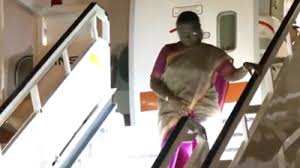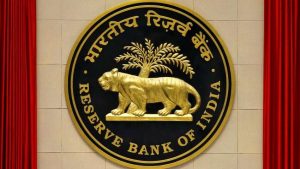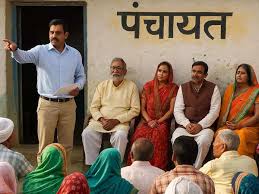Today’s Current Affairs: 11th April 2025 for UPSC IAS exams, State PSC exams, SSC CGL, State SSC, RRB, Railways, Banking Exam & IBPS, etc
Table of Contents
India’s Presidential Visit to Portugal and Slovakia:

The President’s visit to Portugal and Slovakia represents a significant step in India’s foreign diplomacy, especially concerning strengthening engagement with Europe.
- Portugal is the westernmost country in continental Europe, situated on the western edge of the Iberian Peninsula.
- It is bordered by Spain on the north and east, and the North Atlantic Ocean on the south and west.
- Portugal also administers two autonomous regions: the Madeira and Azores archipelagos, located in the Atlantic Ocean.
- The visit is historic, as it aligns with the 50th anniversary of India-Portugal diplomatic relations.
- Bilateral trade between India and Portugal currently stands at USD 1.5 billion and is witnessing steady growth.
- Notably, Portugal was the first European nation to sign a Migration and Mobility Agreement with India, showcasing the strength of people-to-people and institutional ties.
- Slovakia is a landlocked country in Central Europe, strategically located at the crossroads of Eastern and Western Europe.
- It shares borders with Poland to the north, Ukraine to the east, Hungary to the south, Austria to the west, and the Czech Republic to the northwest.
- The terrain is dominated by the Carpathian Mountain range, which includes the Tatra Mountains, a well-known tourist and ecological zone.
- This visit coincides with the 30th anniversary of the Indian Embassy in Bratislava, underlining three decades of diplomatic engagement.
- India’s gratitude is evident for Slovakia’s strategic support during the 2022 evacuation of Indian students from war-torn Ukraine, highlighting solidarity in times of crisis.
Registrar General of India : Caution To Government And Private Hospitals

The Registrar General of India (RGI) has recently issued a strong caution to both government and private hospitals across the country for failing to comply with legal requirements concerning the timely reporting of births and deaths.
- In 1949, the Government of India established a permanent organisation under the Ministry of Home Affairs, headed by the Registrar General and Ex-Officio Census Commissioner of India.
- This position’s role is mainly to ensure a systematic collection of statistics related to India’s population size, growth, and distribution.
- The RGI is also responsible for implementing the Registration of Births and Deaths Act, 1969.
- The Registrar General is typically a civil servant of Joint Secretary rank.
- The office also conducts demographic and linguistic surveys in addition to the decennial Census.
- The Census of India offers detailed data about the demographic, socio-economic, and geographic characteristics of the population.
- Since its first complete round in 1881, the Census has been conducted 15 times, with the most recent in 2011.
- Post-1949, the Census was conducted under the RGI and Census Commissioner.
- Conducted alongside the decennial Census, this survey provides a comprehensive picture of the linguistic diversity in India.
- It is instrumental for educational and social planning in different States.
- The first Linguistic Survey was completed by George Abraham Grierson in 1928.
- It is a mandatory system for birth and death registration in India.
- It serves as a real-time, continuous population data collection mechanism.
- Hospitals, especially government ones, are expected to act as registration authorities.
Governor’s Assent to Bills:

Supreme Court fixes timeline for Governor’s assent on State bills
- The Supreme Court of India in a landmark verdict reprimanded Tamil Nadu Governor R.N. Ravi for withholding assent or delaying action on 10 state bills, which were re-presented by the state legislature.
- The Governor had reserved these bills for the President’s consideration, which the Court held to be unconstitutional.
- In 2023, the Tamil Nadu Government approached SC, citing deliberate delay by the Governor.
- 12 bills (including one from 2020) were pending assent.
- On November 13, 2023, the Governor withhold assent to 10 bills.
- The Assembly re-enacted these bills on November 18, 2023.
- The Governor again reserved some bills for the President on November 28, 2023.
- Article 200: Deals with the powers of the Governor regarding bills passed by the State Legislature.
- The Governor can:
- Give assent
- Withhold assent
- Reserve the bill for President’s consideration
- Article 201 – President’s veto power on bills reserved by the Governor.
- Article 142 – Supreme Court’s plenary power to ensure complete justice.
Naval Exercise INDRA-2025:

The 14th edition of the bilateral naval exercise INDRA-2025 between India and Russia was conducted in Chennai.
- INDRA 2025 was held in 2 phases:
- Harbour Phase in Chennai, featuring expert exchanges, ship visits and sports.
- Sea Phase in the Bay of Bengal, with advanced drills like tactical manoeuvres, anti-air operations and helicopter landings.
- Russian ships such as Pechanga, Rezkiy, Aldar Tsydenzhapov, and Indian warships- Rana, Kuthar, and the P-8I aircraft participated in the exercise.
- Exercise INDRA is a bilateral naval exercise conducted regularly since 2003.
- It aims to counter maritime threats, promote global peace and stability, and strengthen joint operations.
- It reaffirms India-Russia defence ties, enhances collective maritime security, and underscores India’s commitment to a rules-based maritime order.
India-Bangladesh Transshipment Facility:

India revoked the 2020 transshipment facility allowing Bangladesh to use its territory for third-country exports, citing logistical and strategic concerns. The move has significant implications for trade and regional diplomacy.
- India allowed Bangladesh to use its Land Customs Stations (LCSs) and ports to send export cargo to third countries like Nepal, Bhutan, and Myanmar.
- It aimed to reduce transportation costs and improve logistical efficiency for Bangladesh’s key export sectors, particularly readymade garments (RMG).
- Cargo was routed via Indian ports (e.g., Kolkata, Delhi Airport) to enable faster global access, especially for landlocked regions.
- Seen as a goodwill gesture enhancing regional trade integration under India’s “Neighbourhood First” policy.
India Withdrew the Facility : Reason
- The Apparel Export Promotion Council (AEPC) pushed for withdrawal, citing competition with Bangladeshi textile exports, Rising freight costs and congestion at Indian ports and airports, particularly Delhi, impacted India’s own exporters,Bangladesh’s growing proximity to China and remarks undermining India’s strategic position in the northeast added to concerns,Bangladesh inviting Chinese investments near India’s Siliguri Corridor (e.g., Lalmonirhat airbase) raised red flags, The move could be interpreted as a diplomatic message to discourage geopolitical drift away from India’s influence.
UN report – Trends in Maternal Mortality 2000–2023:

A new UN report titled ‘Trends in Maternal Mortality 2000–2023’ ranks India second globally in maternal deaths, reporting 19,000 fatalities in 2023 — 52 maternal deaths per day, only behind Nigeria.
Key Findings of the UN Report – ‘Trends in Maternal Mortality 2000–2023’:
- India, with 19,000 maternal deaths, shares the second spot with the Democratic Republic of Congo, contributing 7.2% of global deaths.
- Nigeria (75,000 deaths) alone accounted for 28.7% of global maternal mortality.
- India’s Maternal Mortality Ratio (MMR) fell from 362 (2000) to 80 (2023) – a 78% decline.
- Global maternal deaths fell by 40% between 2000–2023, but progress has slowed since 2016.
- An estimated 260,000 women died globally in 2023 due to complications from pregnancy or childbirth.
Cafe Rista Initiative:

The Uttar Pradesh Police has launched Cafe Rista, a public-friendly café inside the Noida Police Commissionerate. The initiative aims to foster stronger bonds between police personnel and civilians.
- Cafe Rista is a pastel-themed café set up within the Police Commissionerate of Noida (Sector 108), designed to serve as a community-friendly space.
- The initiative was conceptualised by IPS Laxmi Singh and IPS Babloo Kumar, supported by officer Preeti Yadav through public outreach.
- Aim of the Initiative:
- Break public stereotypes about the police force.
- Build informal and positive interactions between civilians and police.
- Offer relaxation and morale support to both police staff and civilians.
Modernization of Command Area Development and Water Management : Approved

The Union Cabinet has approved the “Modernization of Command Area Development and Water Management (M-CADWM)” as a sub-scheme under the Pradhan Mantri Krishi Sinchayee Yojana (PMKSY) for FY 2025–26, with a total outlay of ₹1,600 crore.
- A comprehensive national irrigation scheme aimed at expanding irrigation coverage and improving efficiency of water use at the farm level.
- Launched in: 2015
- Ministries Involved: Ministry of Jal Shakti, Ministry of Agriculture and Farmers Welfare, and Ministry of Rural Development
- Implementing Agencies:
- Ministry of Jal Shakti for irrigation infrastructure creation
- Ministry of Rural Development for watershed development
- Department of Agriculture and Farmers Welfare for promoting precision irrigation
- Objectives:
- Ensure convergence of investments in irrigation at the grassroots level
- Achieve the target of “Har Khet Ko Pani” (Water for Every Field)
- Promote water-saving irrigation methods like drip and sprinkler systems under the slogan “Per Drop More Crop”
- Conserve water and encourage the reuse of treated wastewater in peri-urban agriculture
Accommodative Stance : RBI

The Reserve Bank of India (RBI), in its latest Monetary Policy Committee (MPC) meeting, retained its accommodative stance to support economic recovery amidst moderating inflation and sluggish growth signals.
- An accommodative stance is a monetary policy approach adopted by central banks like the RBI to stimulate economic activity.
- It generally involves keeping interest rates low and ensuring ample liquidity in the system.
- When economic growth slows or is below potential.
- When inflation is low or within target range.
- During periods needing boosts in consumption, investment, and employment.
- In response to financial shocks or global economic uncertainties.
- Objectives of the Accommodative Stance:
- Promote credit flow and private investment.
- Encourage borrowing and spending by lowering the cost of capital.
- Revive demand in the economy.
- Ensure liquidity support to stressed sectors.
Panchayat Advancement Index Report:

The Ministry of Panchayati Raj released the first Panchayat Advancement Index (PAI) report for 2022–23, with Gujarat and Telangana topping the rankings.
Highlights of 2022–23 Panchayat Advancement Index Report:
- Front Runners (699 Panchayats): Gujarat (346) and Telangana (270) had the highest number of panchayats scoring between 75 and 90, showing strong performance in SDG-aligned rural governance.
- Performers (77,298 Panchayats): Panchayats in Gujarat (13,781), Maharashtra (12,242), and Telangana (10,099) fell in the 60–75 range, reflecting above-average progress with scope for further improvement.
- Aspirants (1,32,392 Panchayats): A large number of panchayats in Bihar, Chhattisgarh, and Andhra Pradesh scored between 40–60, indicating the need for targeted developmental efforts.
- Achiever Category (90+ Score): No panchayat was able to attain the top-tier “Achiever” status, underscoring the need for comprehensive rural transformation across India.
Panchayat Advancement Index Report (PAI):
- It is a multi-sectoral, composite index that assesses the holistic progress and performance of over 2.5 lakh Gram Panchayats across India.
- Designed to evaluate localised achievements on nine Sustainable Development Goals (SDGs) at the grassroots level.
- Launched by: Ministry of Panchayati Raj, Government of India.
- Objective is to enable data-driven governance at the panchayat level, to help stakeholders identify development gaps and promote evidence-based policy interventions in rural India.
Daulatabad Fort : Fire
A fire at Daulatabad Fort in Maharashtra’s Chhatrapati Sambhajinagar district has prompted the Archaeological Survey of India (ASI) to initiate damage assessment and plan disaster management.Originally called Devgiri (Hill of Gods), it was renamed Daulatabad by Muhammad bin Tughlaq when he shifted his capital there in the 14th century.It served as the capital of several dynasties including Yadavas, Tughlaqs, Bahmanis, Nizam Shahis, Mughals, and briefly the Marathas before the Nizams of Hyderabad.It is a UNESCO-nominated heritage site, known for its historical, architectural, and ecological importance.Daulatabad Fort is fortified in three layers Ambarkot, Mahakot, and Kalakot with moats, bastions, and iron-spiked gates. It features a deadly tunnel called Andheri, used to trap and attack invaders.
Mahavir Jayanti: 10th April 2025
Prime Minister inaugurated Navkar Mahamantra Divas to mark Mahavir Jayanti (10th April 2025), emphasizing that Lord Mahavir’s teachings of non-violence, truth, and compassion offer contemporary solutions to global challenges and align with the vision of ‘Viksit Bharat’. Mahavir Jayanti, also known as Mahaveer Janma Kalyanak, is one of the significant religious festivals in Jainism.
It celebrates the birth of Vardhamana Mahavira, the 24th and last Tirthankara of Jain tradition (succeeded the 23rd Tirthankara Parshvanatha), who is considered a great spiritual teacher and reformer. Mahavir Jayanti is celebrated on the 13th day of Chaitra month in the Hindu calendar, the date varies annually.
One-Horned Rhinoceros : Plan For Translocation
The Wildlife Institute of India has proposed a national action plan for translocation of one-horned rhinoceroses to reduce habitat pressure in Assam’s Kaziranga and Pobitora, through reintroduction in new protected areas across five states.One-Horned Rhinoceros Scientific Name: Rhinoceros unicornis.IUCN Status: Vulnerable.Proposed Translocation Sites under New Action Plan:
-
- Assam: Dibru-Saikhowa National Park (Reintroduction of 5 rhinos within 13 years.)
- West Bengal: Gorumara & Jaldapara National Parks (Exchange and introduction of 5 rhinos every 3 years from Kaziranga and Pobitora.)
- Arunachal Pradesh: D’Ering Memorial Wildlife Sanctuary (Suitable for long-term reintroduction of 5 rhinos.)
- Bihar: Valmiki Tiger Reserve
- Uttar Pradesh: Dudhwa National Park, Pilibhit Tiger Reserve, Katarniaghat Wildlife Sanctuary
- Uttarakhand: Surai Range




